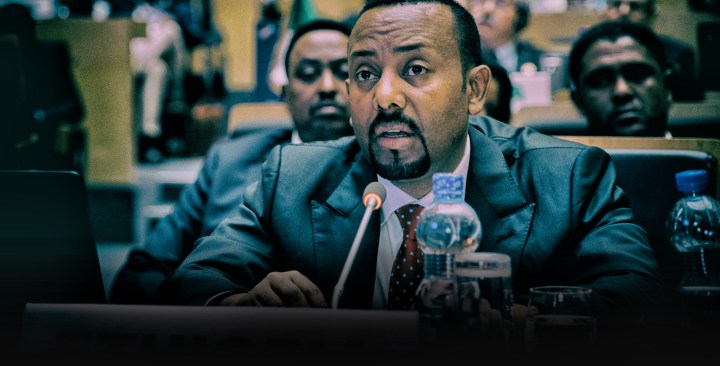Op-Ed
Ethiopia’s new party is welcome news, but they face big hurdles

Prime minister Abiy Ahmed, who has been awarded this year’s Nobel Prize for Peace, has recently announced the establishment of a new political party in Ethiopia.
First published by The Conversation
The Prosperity Party brings together three of the four members of the Ethiopian People’s Revolutionary Democratic Front, which used to be the ruling coalition.
The Tigray People’s Liberation Front is the only member of the coalition that is opposed to the new party. It has already announced it won’t be joining it.
Five regional parties from Afar, Gambella, Harari, Benishangul Gumz and Somali have also joined the party. These regions have historically been excluded from the decision-making process at the national level.
The Ethiopian state has been administered by the Ethiopian People’s Revolutionary Democratic Front since the downfall of the military regime in 1991. The ruling coalition was a hasty creation of the Tigray People’s Liberation Front, which then became its dominant force.
The coalition was successful in creating a deep party structure and thus a deep state. But it has always been marred by infighting. The infighting did not stop despite Abiy’s rise to power on the winds of political change.
The reforms initiated by Abiy and his deputy Demeke Mekonnen have been breathtaking, but the prime minister and his team are not assured of success, as they face big challenges.
The Prosperity Party is already facing criticism from members of the former ruling coalition even though many Ethiopians see it as an opportunity to unite and overcome ethnic polarisation and recurrent violence.
Tensions
Government bureaucracy in Ethiopia was weakened under the former ruling coalition. State institutions were paralysed as Ethiopia’s brightest intellectuals left the country.
The fact that regional states were administered by competing ethno-nationalist parties meant that conflicts across domestic administrative boundaries were common.
To make matters worse, the four coalition parties – Tigray People’s Liberation Front, Amhara Democratic Party, Oromo Democratic Party, and Southern Ethiopian People’s Democratic Movement – were fully in charge of the political centre. This left peripheral parties and their regions without a say in matters of state.
As old habits continue to surface, even under Abiy, ethnic relations have continued to deteriorate and violence across the country has become the norm. The country is a world leader in the number of internally displaced populations.
And domestic relations have been full of political tensions. This has been particularly true between political elites from regional states such as Tigray and Amhara. The Tigray region, especially, has been cold to Abiy and Tigrayans have expressed frustration with the reforms.
Tensions and conflicts were to be expected given that the country’s elites aren’t happy with the significant changes being initiated by Abiy’s administration. This has included the fight against corruption, patron-client relations and rent-seeking activities.
The administration too has its own flaws. For example, it has been justifiably criticised for its slow responses to ethnic conflicts and the displacement crisis.
It was also slow in reacting to the deteriorating situation in Sidama, which turned violent and claimed many lives. The government finally did the right thing by calling for a referendum, which was held peacefully. The vote is likely to lead to the formation of a new member in Ethiopia’s federation.
Long road ahead
Abiy and his allies seem committed to ending the political catastrophe that has seen huge numbers of Ethiopians being ignored. The most important beneficiaries of the newly unified party are likely to be the minorities.
But Abiy still has a lot of convincing to do. Individuals and groups opposed to the Prosperity Party are concerned that it could threaten the current federal arrangement that was designed to promote group rights over those of the individual.
But these arguments might not work. Firstly, the federal system created 28 years ago was deeply flawed because it cut so many out of any meaningful decision-making. If the Prosperity Party wins the next election, those on the periphery will be part of the ruling centre. In my view, this will ensure that they are represented in central decision-making while keeping the current federal arrangement intact.
But substantial reforms will only occur if the Prosperity Party wins the election in 2020. The exact dates are yet to be announced.
State-federal relations
If the new party wins, it will be in a better place to strengthen the weakened relations between regional states and the federal government.
The other change would be better political representation and a federal system that treats every region and group fairly.
And finally, the most welcoming aspect of a victory for the Prosperity Party would be its commitment to protecting both group and individual rights. But to assure such promising changes, the party must be willing to prioritise Ethiopian unity over ethno-nationalism.
If the new party delivers on its promises, chances are high that it could be a good alternative political force to any potential political opposition. DM
Yohannes Gedamu, Lecturer of Political Science, Georgia Gwinnett College


















 Become an Insider
Become an Insider